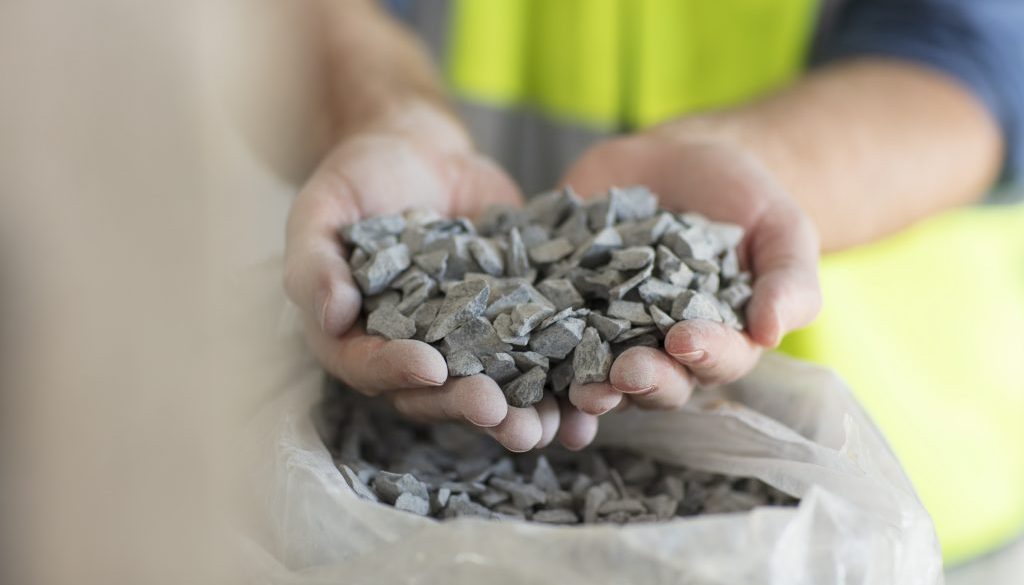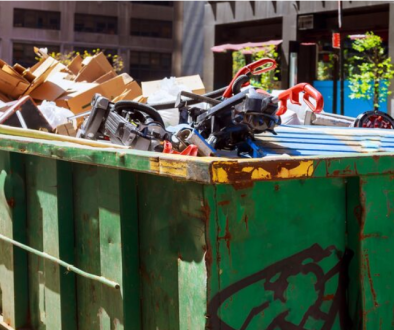Aggregates play a pivotal role in the construction industry, serving as the foundation for a wide range of applications, including concrete production, road construction, and landscaping projects. With a diverse variety of aggregate types available, each possessing its unique properties and characteristics, it’s essential to choose the right aggregate for your specific construction project to ensure optimal performance, cost-effectiveness, and sustainability.
This blog post will provide an overview of the most commonly used aggregates, their properties, and applications. We will also provide guidelines on selecting the appropriate aggregate for your project and highlight the importance of partnering with a reliable aggregate supplier, such as Enviro Skip Hire, to ensure the consistent quality and timely delivery of your chosen materials.
Types of Aggregates and Their Properties
1. Crushed Stone
Crushed stone is one of the most commonly used aggregates in the construction industry. Sourced from the mining and crushing of natural rock, crushed stone aggregates are available in various sizes and consistencies, depending on the degree of processing involved. With properties such as strength, durability, and resistance to environmental factors, crushed stone is an ideal aggregate for a range of applications, including concrete production, road construction, and drainage systems.
2. Sand
Sand is a naturally occurring aggregate consisting of finely divided rock and mineral particles. Available in different grain sizes, shapes, and colours, sand aggregates possess characteristics such as compaction, water retention, and resistance to erosion, making them suitable for applications such as mortar and plaster production, concrete mixes, and as a foundation material for paving and bricklaying projects.
3. Gravel
Gravel is a versatile aggregate composed of small, rounded rock fragments sourced from natural deposits or created through crushing larger rocks. With excellent drainage and load-bearing capabilities, gravel aggregates are well-suited for use in road construction, landscaping projects, and as a foundation for various structures.
4. Recycled Aggregates
Recycled aggregates are created by processing and repurposing waste materials, such as concrete, bricks, and asphalt. These sustainable aggregates offer an eco-friendly alternative to traditional natural aggregates without compromising quality and performance. Commonly used in base layers for roads, pavements, and car parks, recycled aggregates provide an effective solution for promoting environmental sustainability in construction projects.
Selecting the Appropriate Aggregate for Your Project
1. Assess Project Requirements
The first step in selecting the right aggregate for your project involves a thorough assessment of your project’s specific requirements, including load-bearing capacities, durability, and environmental considerations. Consider factors such as the intended application, design specifications, and budget constraints to ensure that the selected aggregate aligns with your project’s needs.
2. Understand Aggregate Properties
To make an informed decision regarding aggregate selection, you should familiarise yourself with the properties and performance characteristics of different aggregates. Factors such as strength, durability, porosity, and resistance to environmental factors should be considered when evaluating the suitability of an aggregate for your project.
3. Consider Sustainability
Opting for environmentally friendly aggregates, such as recycled aggregates, can foster sustainable construction practices and reduce the environmental impact of your project. By prioritising sustainability in your aggregate selection, you contribute to resource conservation, waste reduction, and the cultivation of a greener construction industry.
4. Consult with a Professional
If you are unsure about the appropriate aggregate for your project, consult with a professional aggregate supplier or a knowledgeable engineer. These experts can provide valuable guidance in selecting the most suitable aggregates for your specific project needs and ensure that all technical requirements are met.
Partnering with a Reliable Aggregate Supplier
1. Quality Assurance
Working with a reputable aggregate supplier, such as Enviro Skip Hire, ensures consistent quality and adherence to industry standards for your chosen materials. The supplier’s commitment to quality assurance and regular testing gives you peace of mind that your chosen aggregates meet the specifications and requirements of your project.
2. Timely Delivery
Timely delivery of materials is critical for the smooth progress of construction projects. Partnering with a reliable aggregate supplier guarantees that your aggregates are delivered on time, minimising delays and disruptions to your project schedule.
3. Expertise and Advice
A reputable aggregate supplier can provide valuable insights and recommendations to ensure optimal aggregate selection for your project. With extensive knowledge of different types of aggregates and their respective characteristics, an experienced supplier can guide you towards making an informed and appropriate decision.
Conclusion
Selecting the right aggregate for your construction project is a crucial step in ensuring the long-term performance, cost-effectiveness, and environmental sustainability of your endeavour. By carefully assessing your project’s requirements, understanding the properties of different aggregates, and prioritising sustainability factors, you can make an informed choice that benefits both your project and the environment. Partnering with a reliable aggregate supplier like Enviro Skip Hire further guarantees the quality and timely delivery of your chosen materials, contributing to the successful execution and completion of your construction project. With a well-planned approach to aggregate selection, you can build a durable, efficient, and eco-friendly solution that stands the test of time.




